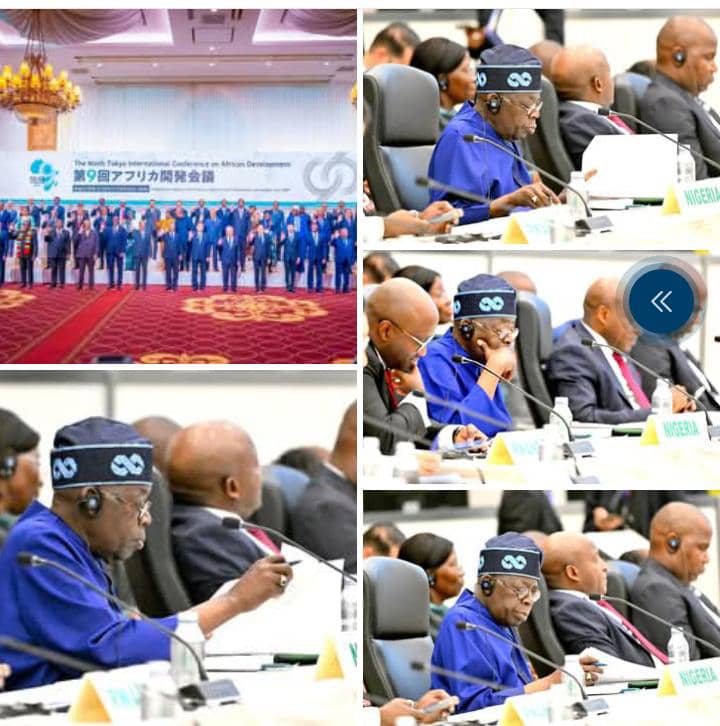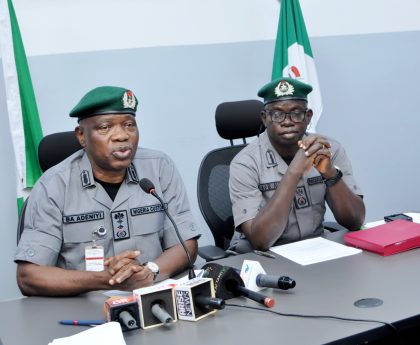At the 9th Tokyo International Conference on African Development (TICAD 9) held in Yokohama, Japan, President Bola Ahmed Tinubu praised Nigeria’s armed forces for their unwavering efforts in combating insurgency and criminal activity. He emphasized that true national progress requires not only military victories but also bold reforms that address the root causes of insecurity.
According to a press statement signed by Bayo Onanuga, Special Adviser to the President (Information & Strategy), President Tinubu who spoke during the plenary session on Peace and Stability reaffirmed Nigeria’s commitment to inclusivity, diversity, and the rule of law—values he described as the country’s greatest strengths. He highlighted the momentum within the armed forces as a foundation for long-term development and stability.
Following the opening remarks, Japanese Prime Minister Shigeru Ishiba outlined Japan’s strategic priorities for Africa: private sector-led growth, youth and women empowerment, and regional integration. He announced a new economic framework in partnership with the African Development Bank, which will channel up to $5.5 billion through the Japan International Cooperation Agency (JICA) to stimulate investment across the continent.
President Tinubu stressed that Nigeria’s development strategy includes infrastructure expansion, institutional reforms, and collaboration with civil society and global partners. “Our armed forces can win battles,” he said, “but their heroism is truly honored when we, as leaders, confront not just terror, but the conditions that give rise to it.”
He also pointed to recent peace agreements in the Congo as evidence that linking mediation efforts with economic incentives can foster lasting stability. “We must rethink how we approach peace,” Tinubu urged, “and recognize0 the successes we’ve already achieved.”
Calling for a shift from aid dependency to market-driven partnerships, Tinubu urged Japan and other global powers to support reforms in the United Nations—particularly the Security Council. He advocated for Africa to receive two permanent seats with veto power, along with expanded representation in the non-permanent category, echoing the Ezulwini Consensus and Sirte Declaration.
On technology, Tinubu called for global cooperation to ensure digital tools, promote unity and trust rather than division. Prime Minister Ishiba echoed this sentiment, emphasizing the need for locally rooted solutions and deeper understanding between Japan and Africa.
Ishiba also addressed Japan’s demographic challenges, including a shrinking population and declining agricultural land, and appealed to African nations for collaboration. He praised Africa’s youthful population as a powerful asset, noting that industrialization and job creation are key to unlocking its full potential.





